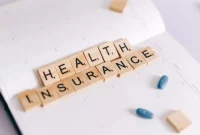
When you are going to study Laser therapy, you can will know about enhance with your studying thus we are sharing this article for knowledge. Here, According to a recent study, young people’ short-term working memory can be enhanced by laser light therapy.
Future treatments for medical diseases that affect working memory, like ADHD, may be affected by the findings.
Despite the encouraging findings, larger, more thorough studies on a variety of populations are still required to establish how well laser light therapy can enhance cognition.
Working memory is necessary for tasks like remembering the name of a new acquaintance, a list of instructions, or a shopping list. Information needed right away is stored in this kind of temporary memory. It contains information that hasn’t yet been stored in long-term memory.
However, working memory is not just for remembering facts. It supports several regular mental processes like learning and problem-solving. Even though the majority of people occasionally have trouble remembering things, especially when interrupted or distracted, some medical problems can also have an effect on working memory. This includes Alzheimer’s illness, schizophrenia, and attention deficit hyperactivity disorder (ADHD) (AD).
According to a recent study, laser light therapy may be able to partially compensate for some of these cognitive deficits in order to enhance working memory.
- Science Advances recently published the study.
- Laser therapy can be used to enhance working memory.
Working memory in healthy volunteers was shown to be improved by laser light therapy by about 10%, according to researchers from Beijing Normal University in China and the University of Birmingham in the United Kingdom. Transcranial photobiomodulation (tPBM), the name of the procedure, is the delivery of near-infrared to infrared light to the brain tissue through the skull and scalp. tPBM is currently being researched as a means to treat many brain disorders as well as to enhance cognitive performance, including:
- a severe form of depression (MDD)
- Authentic Alzheimer’s Source
- trauma to the brain (TBI)
The study’s lead author, Dongwei Li, a visiting PhD student at the University of Birmingham’s Centre for Human Brain Health, said in a news release that people with attention-related disorders like ADHD or other conditions could benefit from this type of treatment because it is risk-free, easy to use, non-invasive, and has no negative side effects.



Leave a Reply